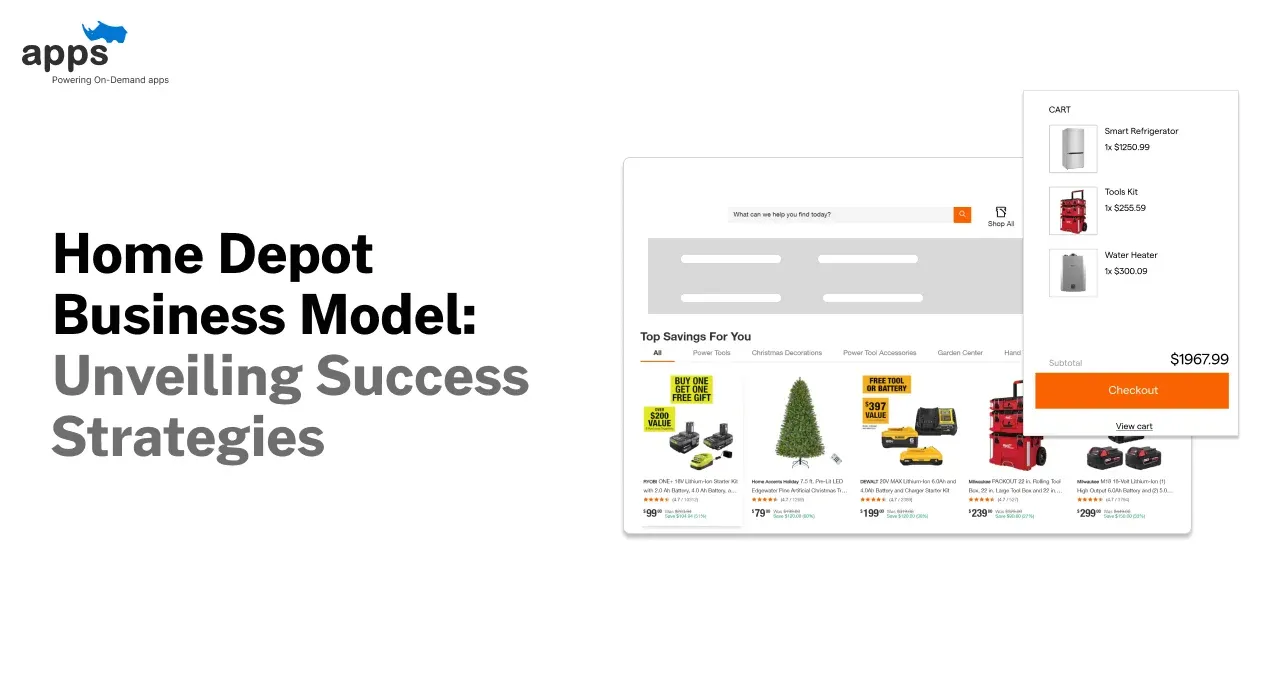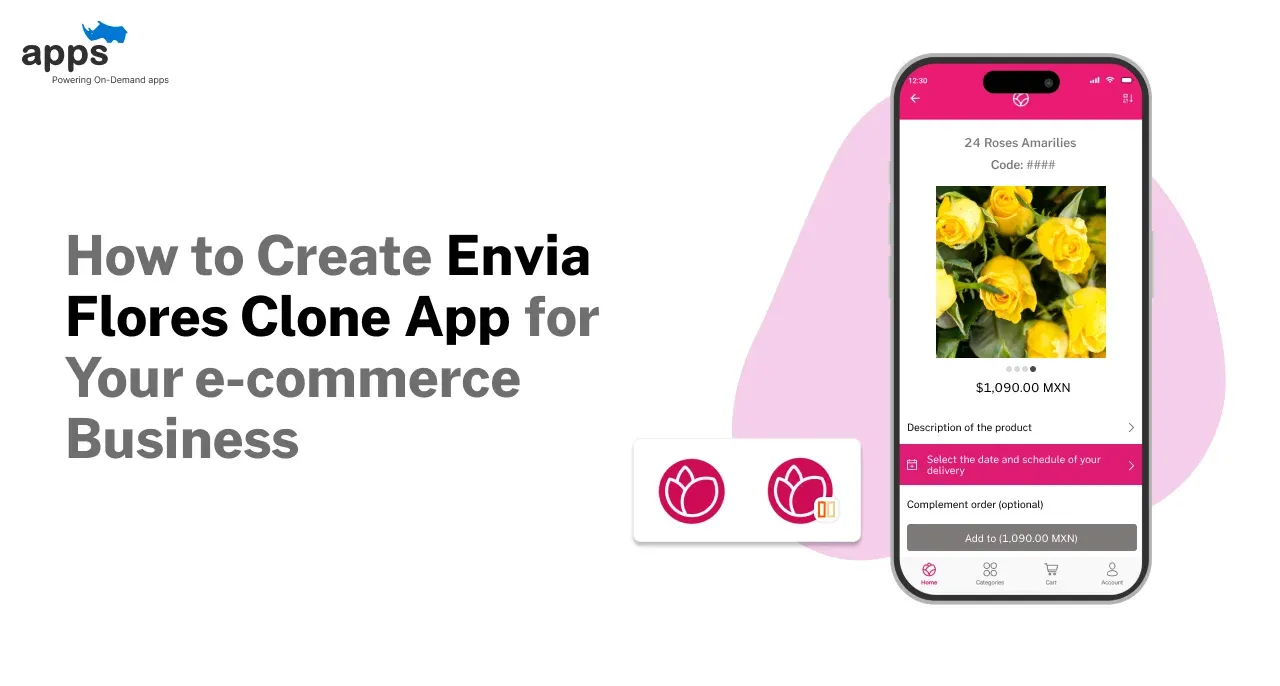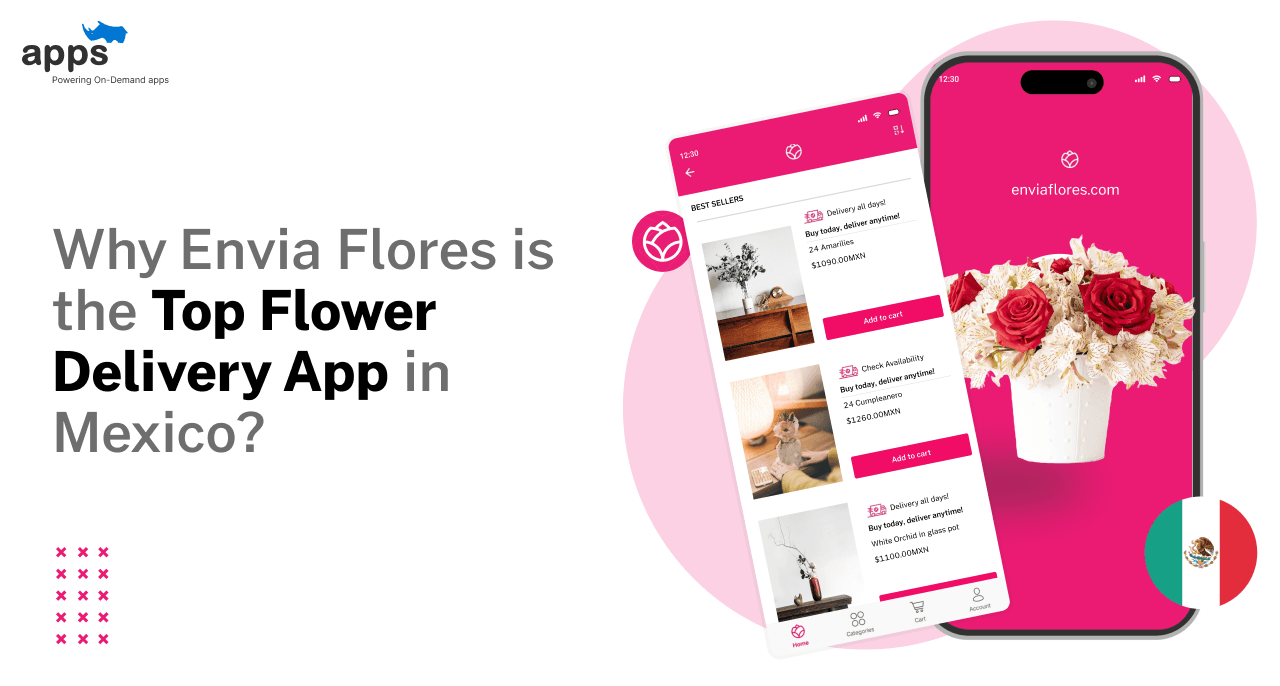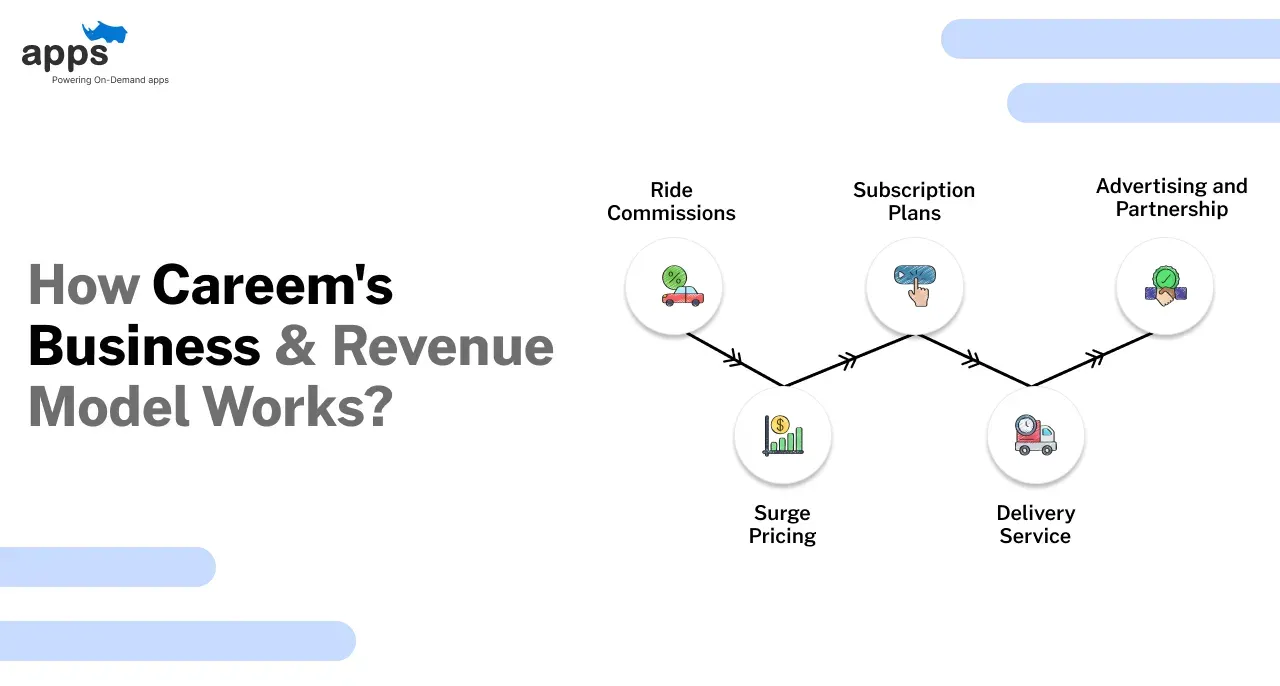- Introduction
- Rappi's Business Model
- What is Rappi?
- Rappi's Revenue Model
- Challenges and Solutions
- Conclusion
- Frequently Asked Questions (FAQs)
Table of Contents
How Rappi works: Business Model and Revenue Model

Introduction
Nobody likes to fail. But maybe we should. After all, isn't failure just success that's stuck in traffic? Try telling that to a startup on the brink of collapse - sounds crazy, right? Yet, here's where we tip the scales: every misstep is a lesson in gritty disguise.
Imagine an app that didn't exist a decade ago, and now, it's glued to your phone, woven into your daily life. It’s Rappi. Yes, your go-to for everything from tacos to toothpaste.
Got a craving or in a pinch at midnight? Rappi swoops in to save the day. But it's more than a delivery app; it's a story of hits and misses, of dodging potholes on the road to 'got it right'.
Rappi's journey isn't just about bringing stuff to your doorstep. It's a masterclass in tackling what life throws at you, in business and beyond. From bumping heads with big names to decoding the legal jigsaw, they've been through the wringer. Yet, they come out punching, armed with solutions. Let's unwrap this tale of challenge, grit, and smarts.
Rappi's Business Model

Rappi operates as an on-demand delivery service. It is like a digital courier, where users request anything from groceries to electronics, and Rappi brings it to their doorstep. Established in Colombia, Rappi has become a staple in the daily lives of many across Latin America.
What is Rappi?
Imagine needing something and getting it without stepping outside. That's Rappi for you. Users browse through the app, pick items from various categories – think restaurants, supermarkets, pharmacies – and a Rappitendero, the company's delivery personnel, completes the delivery.
Core Features
Anyone with a smartphone can use Rappi. Open the app, select, and order. It’s a simple, streamlined process. Rappi stands out because it offers a vast selection. From your dinner to your gadgets, it can all be ordered via Rappi. They've made a promise to their customers: Whatever you need, whenever you need it, they've got you.
The app is always on. It's there for last-minute needs and scheduled orders alike. This round-the-clock service hooks users in, especially the younger crowd who value instant gratification.
Target Market
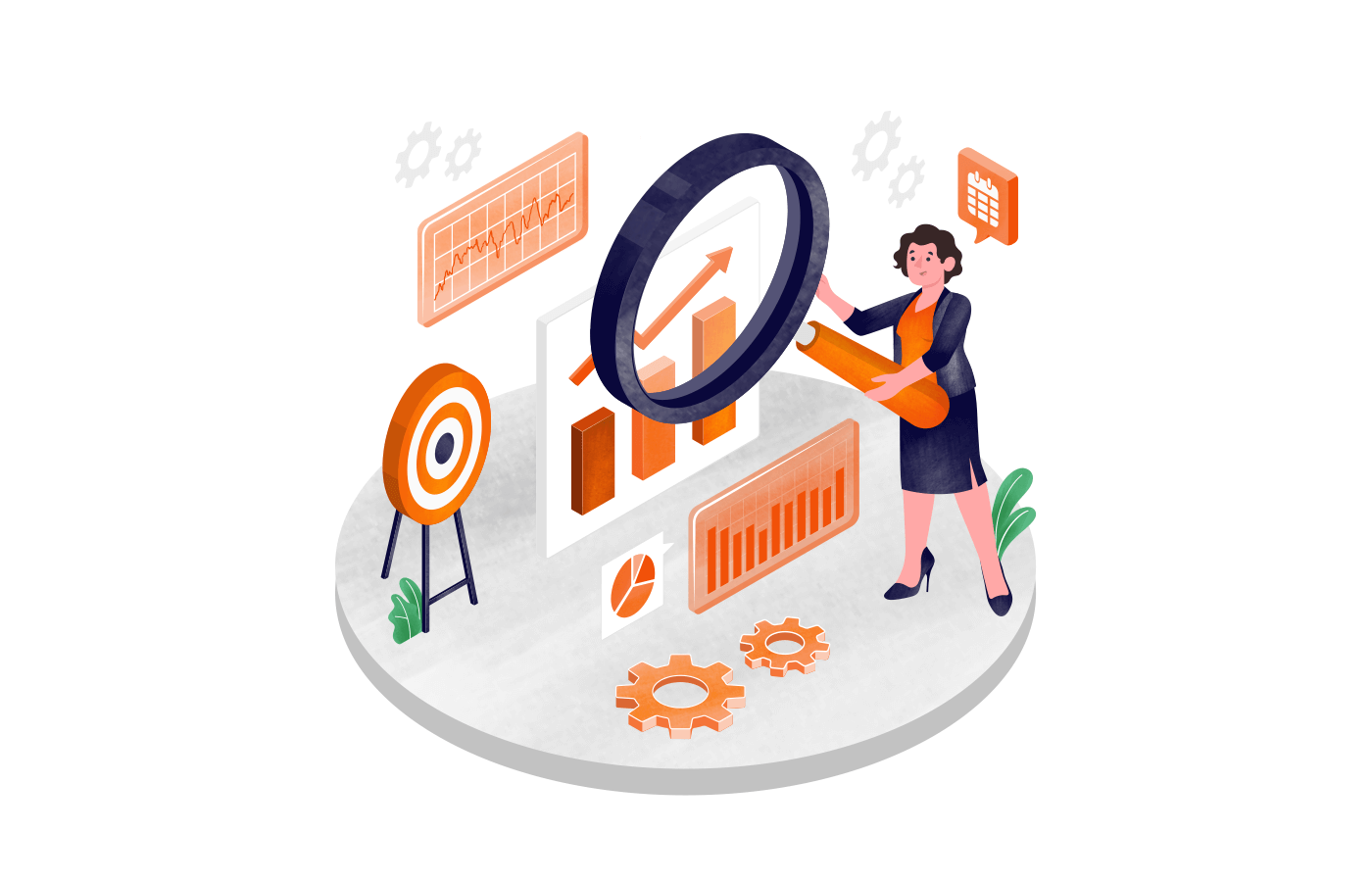
Rappi zeroes in on busy city dwellers. These are typically people juggling work, life, and everything in between. They want convenience. They're willing to pay a bit extra for time saved. They also tend to be younger folks, comfortable with apps, and looking for fast service.
Expansion Strategy
Rappi doesn't stay still. They grow by tapping into new areas, adding more services to their lineup. They observe user trends – like a surge in pet products or the latest gadget craze – and then partner with relevant suppliers to meet those demands.
Marketing plays a big role too. Rappi aggressively promotes its services through discounts and special offers. The idea is simple: get people hooked with a deal, then keep them for convenience.
Rappi also customizes its approach to each market. For example, in densely populated cities where motorbikes are common, they may use those for faster delivery. In others, where online banking isn't as popular, Rappi introduced RappiPay, making transactions smoother for their customers.
Adapting to Local Markets
Local preferences matter. Rappi isn't a one-size-fits-all solution. In each country, it molds its services to fit the culture and habits of the people. This local-first approach taps into hometown loyalty and provides a service that feels tailor-made.
Technology and Efficiency
At its tech heart, Rappi invests in data. They track orders, spot trends, and predict demand. This isn't just smart business; it's how they ensure that they have what you want before you even ask for it. Data drives their supply chain decisions, route optimizations for deliveries, and even what new services to unveil.
Rappi's business model is about delivery, expansion, and adaptation. Through a user-friendly app, it meets urban dwellers' needs with immediacy and convenience. It grows by entering fresh markets and diversifying its offerings. And it stays relevant by customizing its approach to each locality. This model has made Rappi a key player in the delivery service sector, with the potential for continued growth across the increasingly digital and convenience-focused markets of Latin America.
Rappi's Revenue Model
Rappi makes money in different ways. It’s not just about delivery fees. They've got more going on. Let's break it down.
Primary Revenue Streams
The majority of Rappi's earnings come from three things: delivery fees, subscriptions, and commissions.
- Delivery Fees: Every time a Rappitendero makes a delivery, the user pays a fee. This is the most direct way Rappi earns. But, like many delivery apps, Rappi sometimes changes these rates based on demand or distance.
- Subscriptions: Then, there's Rappi Prime. This is a subscription model where users pay a monthly fee. In exchange, they get free deliveries. It's a win-win. Users save if they order a lot, and Rappi gets regular income.
- Commissions: Rappi also earns from the shops and restaurants it partners with. Whenever a user orders from these places using the app, Rappi gets a cut. These commission rates vary a lot. The type, size, and deal with the partner can affect it.
Secondary Revenue Streams
Apart from those three big earners, Rappi makes money in a couple of other ways.
- Advertisements: One way is through ads. Businesses can pay to get featured on the Rappi app. This increases their visibility to users.
- RappiPay: Rappi expanded into financial services with RappiPay. It works like a digital wallet. Users can pay for stuff, transfer money to others, and even take out loans. In some cases, Rappi charges a tiny fee for these transactions. As more users start using RappiPay, it could become a significant revenue source.
Financial Ecosystem Integration
Rappi doesn’t just stick to delivery. They're already working with finance.
In the places where Rappi operates, not everyone has banking access. This is where RappiPay helps out. People can deposit their money into RappiPay and then use it like a debit card.
Rappi is betting big here. They believe that as more people use Rappi for delivery, they'll start using RappiPay more too.
Suggested Reading: Caviar’s Business Model Explained
Expansion and Future Projections
So, where is all of this going? Well, Rappi seems eager to keep growing its financial services. The goal is to make life more convenient for users, after all.
They're looking at more ways to integrate with local financial systems. Maybe they'll allow more types of transactions, or they might increase their loan offers.
As they keep expanding, more and more people will likely start using RappiPay. And that means more revenue for Rappi. So, the future's bright.
All in all, Rappi has a diverse revenue model. It earns from delivery orders and subscriptions. It also gets a piece of the pie from the partners it delivers for. But there's more. Rappi is also exploring advertisement earnings, and with RappiPay, it's opened a door to the world of financial services. They’re not stopping anytime soon either. Rappi keeps finding new ways to make money, and that's why it's on the rise.
Challenges and Solutions
Rappi has its share of challenges, but they're not just standing around waiting for them to solve themselves. They hit back with solutions that keep things moving. Let’s see what they're up against and how they deal with it.
Challenges
- Facing the Competition: With big names and new startups eyeing Rappi's market, staying ahead means staying innovative and always looking to up their game.
- Navigating Regulation: Every country's rules can be a minefield. Being quick to adapt and having a team ready to tackle legal changes is crucial.
- Delivery Delays: Traffic jams and storms are nobody's friends. Using technology to reroute deliveries and having plenty of Rappitenderos on the road helps keep the pace.
- Partner Problems: Dependence on third-parties is tricky. Quality control and having backup options ensure one partner’s slip-up doesn’t tarnish Rappi’s reputation.
- Technology Troubles: App crashes or security breaches can turn users away. Continuous testing and investing in cybersecurity are non-negotiable to keep things smooth and safe.
Solutions
- Innovate Against Rivals: Keeping services fresh and improving constantly ensures Rappi stands out from the rest.
- Legal Agility: A dedicated team that's always updated on the law scene helps Rappi stay compliant and quick on its feet.
- Optimize Routes: Leveraging technology to find the quickest paths and employing more delivery personnel even out the delivery hiccups.
- Foster Strong Partnerships: By keeping in close contact with partners and setting up alternate plans, Rappi makes sure they are ready for the unexpected.
- Robust Tech Infrastructure: Regular app checks and serious investments in cybersecurity keep the digital wheels oiled and user data locked down.
So there you have it. Rappi faces off with the usual suspects – tough competition, strict regulations, and unexpected delays, not to mention partner pitfalls and tech headaches. But they're not just winging it.
They've got a playbook full of moves to stay one step ahead. It’s all about being smart and fast, keeping the tech tight, and making sure those partnerships are holding strong.
Conclusion
Rappi is all about taking challenges in stride and innovating solutions. They're not afraid to get their hands dirty. They step up, learn from their hits and misses, and keep the show running.
They've got revenues coming in from multiple angles and they're always hunting for new ways to serve their users better. It's not just about deliveries anymore. Adding financial services has given them a whole new playing field to play on.
But challenges? Yeah, they've got their fair share. Yet, they've found ways to tackle each one head-on. They're all about finding smarter paths, making savvy moves, and keeping their eyes on the prize. So, what's next on the horizon for Rappi? Only bigger and better things.
Frequently Asked Questions (FAQs)
How does Rappi's financial services integrate with their delivery model?
Rappi has blended financial services like digital payments seamlessly with delivery services, offering a unified user experience.
What's Rappi's approach to environmental sustainability?
Rappi's sustainability efforts focus on reducing waste and promoting eco-friendly packaging and delivery options.
How does Rappi support local businesses through the platform?
Rappi partners with local stores and restaurants, providing them with a wider customer base and digital exposure.
What customer support does Rappi offer if there's an issue with an order?
Rappi provides 24/7 customer service to address any concerns or issues with orders in real-time.
Table of Contents
- Introduction
- Rappi's Business Model
- What is Rappi?
- Rappi's Revenue Model
- Challenges and Solutions
- Conclusion
- Frequently Asked Questions (FAQs)


